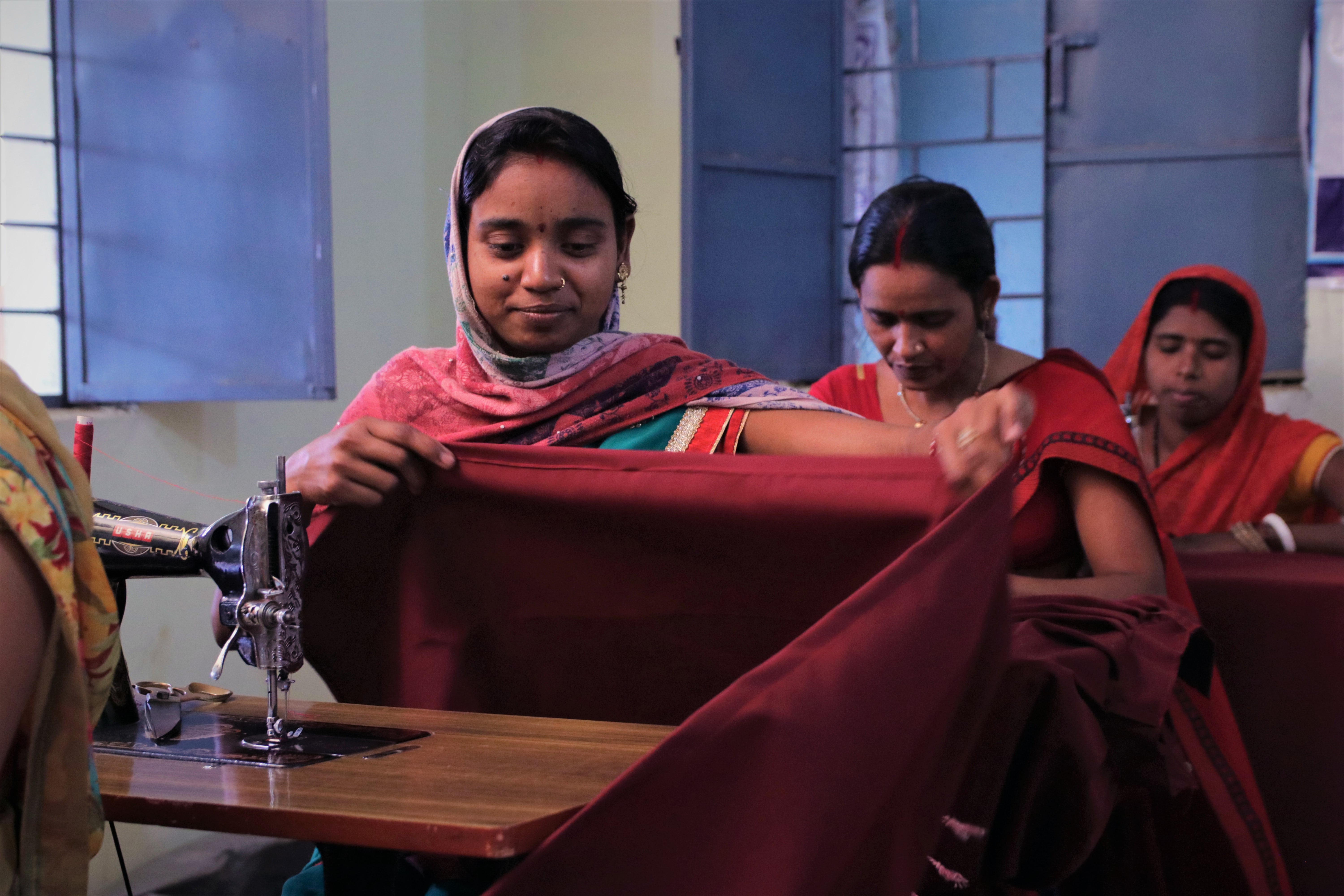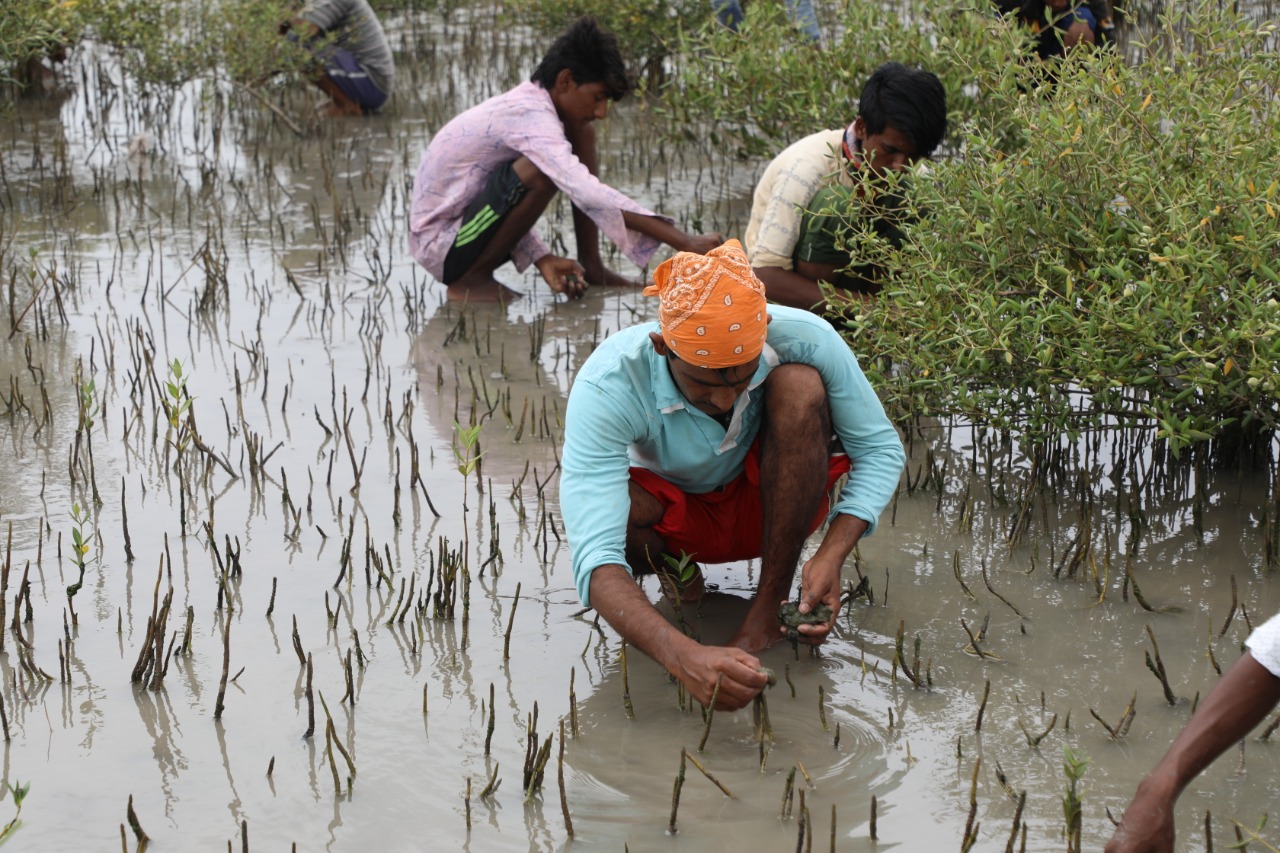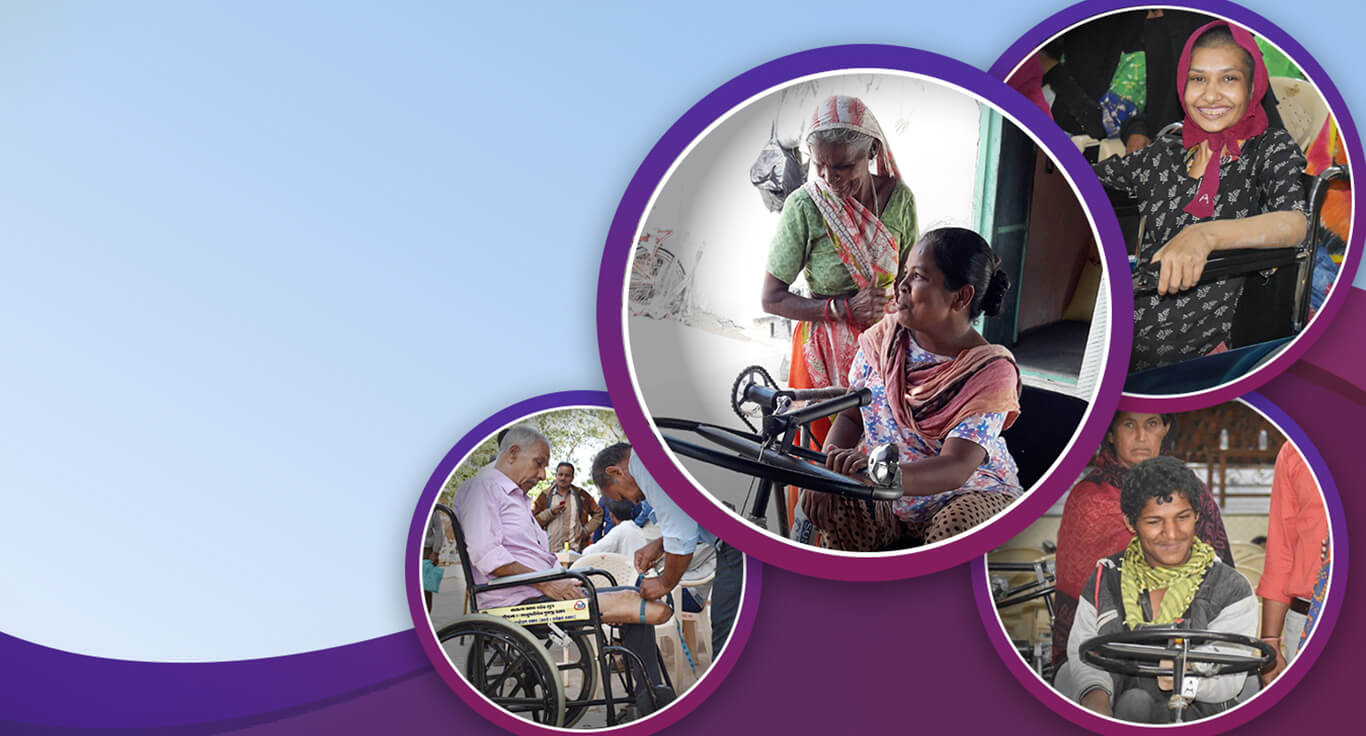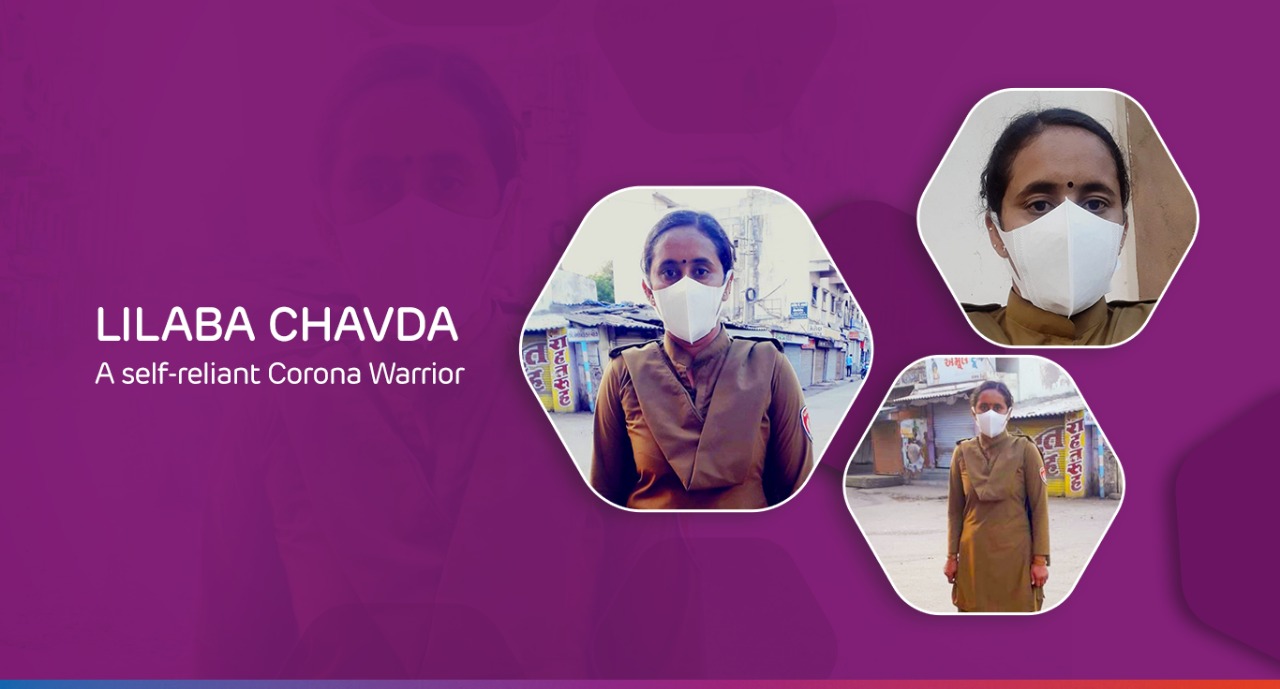
Creating opportunities for rural communities is at the heart of creating shared prosperity and nation building. And the success of sustainable livelihood development at the grassroots cannot be achieved without pressing for gender equity and equality – as socio-economic independence of women is inextricably linked to the overall development of communities. Data from International Labour Organization (ILO) shows that around 1.3 billion people around the globe live in absolute poverty, of which, 70% are women. Deepening the concern, women account for just 10% of the world’s income and own less than 1% of world’s property.
In India, women dominate the micro enterprise sector both in rural and urban areas, however the sustainability of such units and their participation in small and medium enterprises is low. Even though the Government of India has taken various steps towards the welfare of the women in general and women-led enterprises in particular, the contribution of Indian women to the GDP is only 17%, whereas the global average is 37%. Sustainable business models to boost women-owned and women-led enterprises are therefore vital to overcome the existing challenges.
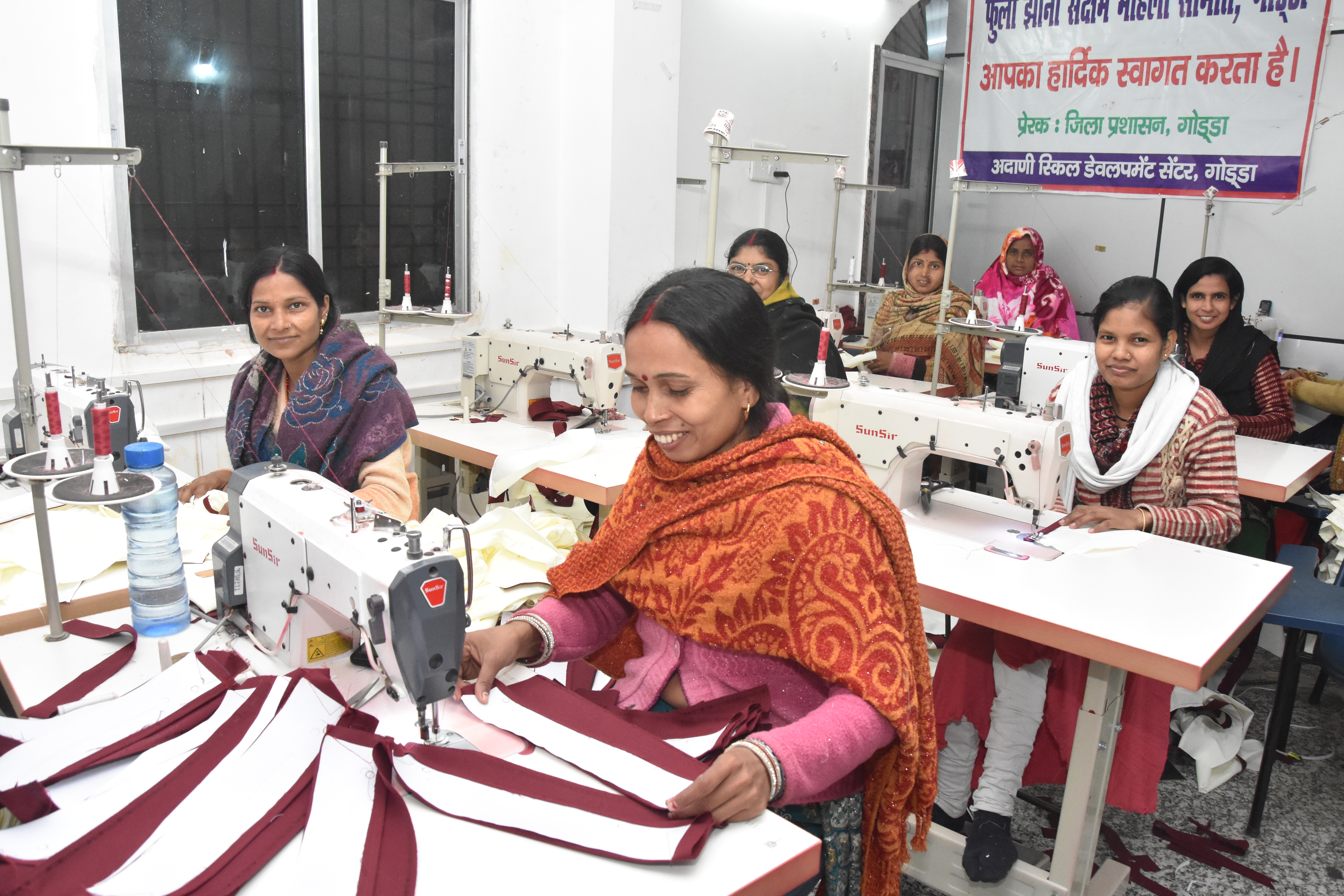
Adani Foundation, the CSR arm of Adani Group, equips communities by undertaking systematic capacity building exercises and extending handholding support. This has paid impetus to women-owned units in preparing bankable projects, mobilizing resources, connecting financial institutions, exploring market linkages, ensuring proper branding, and providing highest quality in services and products. This is done in alignment with the sustainable livelihood approaches of organizations like the United Nations Development Programme (UNDP), CARE, and the Department for International Development (DFID).
Over the last five years, Adani Foundation’s initiatives to boost women-owned enterprises and self-help groups (SHGs) have reached greater heights, covering more than 20,000 community members in farming and non-farming sectors. A few success stories include the Phoolo Jhano Saksham Ajeevika Sakhi Mandal (PJSASM) at Godda (Jharkhand) which engages 1500 women through stitching and garments making units, Mahila Udyami Bahuddeshiya Sahkari Samiti Ltd (MUBSS) at Surguja (Chhattisgarh) which is a tribal women led federation of 49 SHGs with 250 women shareholder members, and the Pragatishil Mahila Farmers Producer Company (PMFPC) at Tirora (Maharashtra) with 238 stakeholders.
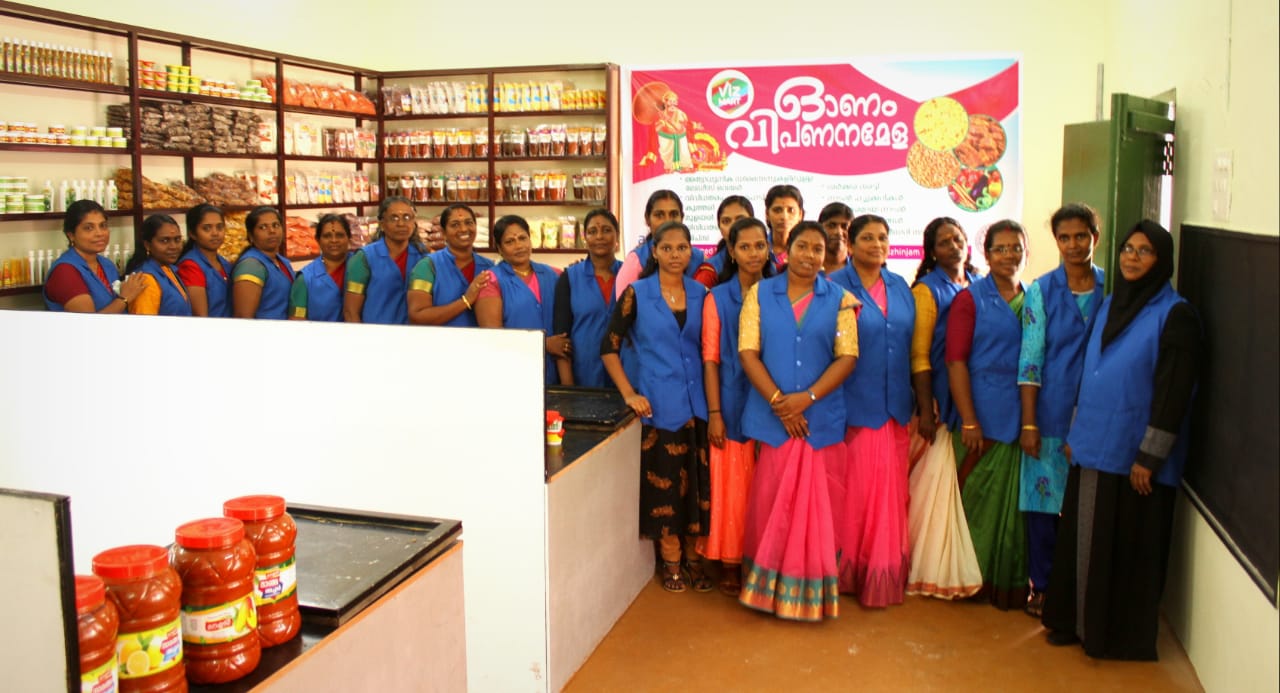
More specifically, women centric micro-enterprise development at Vizhinjam (Kerala) is an emerging saga that started with low capital and low risk at the initial stage, gaining momentum with advanced resources and technology while becoming matured units. This livelihood model has provided an alternate income to 250 poor families in Vizhinjam. Each member is earning an amount ranging between INR 72,000 and INR 1,50,000 per annum. In this journey, the initial task was to identify and conduct capacity-building of potential entrepreneurs. Basic livelihood management training was provided to 1,200 women from fishing communities and other marginalized sections in and around Vizhinjam. This includes classroom sessions and practical exercises on market study, feasibility test and project preparation to get a clear understanding on the risks and challenges of business. The training helped to identify 250 women who were both interested as well as capable to start group enterprises.
These enterprises are developed by ensuring that 50% of the project cost borne by the women’s groups, which is another way to crystalize the intent and genuineness of the stakeholders. Presently at Vizhinjam, 17 such innovative livelihood projects having 5-10 women in each group are running successfully. This includes a high-tech cleaning unit, high-tech poultry units, Eco-shop unit, Event management unit etc. Most of these units are housed at a common shop called VIZMART, managed by a federated committee of all the livelihood units. This setting up of a market platform has proved to be a major and effective way to support the groups. A bankers’ platform has also been created, the impact of which is evident in 100% fulfilment of EMI by all groups, wherein some of the groups have even closed the loan well in advance and have taken a second loan for expansion purposes.
The cleaning unit mentioned above is called Clean 4 U, run by a group of five women from low-income families in Vizhinjam, providing cleaning services to hospitals, homes, offices etc. The group started with twelve clients in the first three months which has now been expanded to 61 clients. What is noteworthy is that currently, the unit employs 25 women. The group has purchased their own four-wheeler, cleared all bank loans and each member is taking an average of INR 10,000 per month as salary from the total earnings. Despite the initial struggle to overcome the societal norms, they are now highly recognized and appreciated by their family and community members.
The importance of economic growth of women goes beyond the direct benefits of eradication of poverty (SDG 1) and zero hunger (SDG 2), and indirectly brings improvements in health (SDG 3), education (SDG 4), and gender equality (SDG 5). Our investment in developing capabilities and investment capacity of women by providing technical know-how and requisite financial products is indispensable to facilitate inclusive growth and transformation in the new, real, rural India.
Anil Balakrishnan, Head – CSR, South India

